General Dental Gosford
With our reliable general dental services and routine care, you can minimise chances for cosmetic dental later on in life.
Visit our Gosford clinic today to resolve your dental issue!
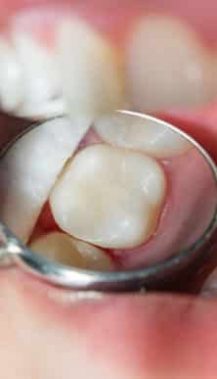

With our reliable general dental services and routine care, you can minimise chances for cosmetic dental later on in life.
Visit our Gosford clinic today to resolve your dental issue!


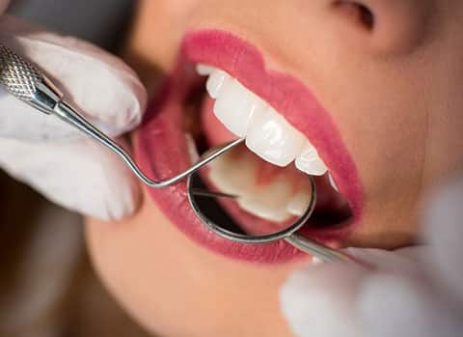
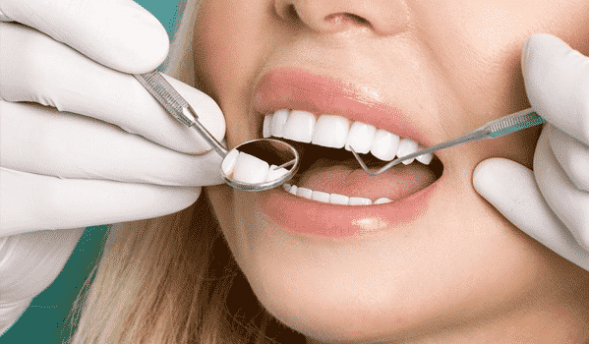
Maintaining good oral health is about as simple as it sounds. We recommend that you develop an easy-to-follow oral hygiene routine and schedule regular check up appointments with your dentist in Gosford to ensure your teeth and gums remain beautiful and healthy.
Visiting Albany Dental every six months for a thorough examination and clean will keep your teeth strong and gleaming.
Looking for more ways to keep those teeth in top condition?
Here are some of our professional recommendations:
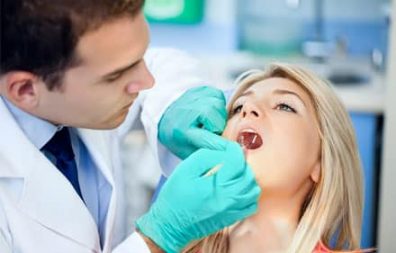
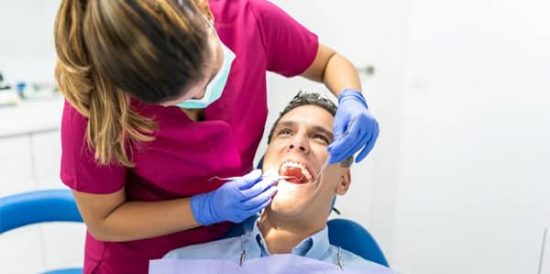
During your routine check-up with Albany Dental, our dentists will ensure you’re feeling comfortable and ask about any concerns you may have about your oral health. Following this, the dentist will assess your overall oral health with a simple examination process.
During your examination, we will:
At the end of your examination, our dentists will talk to you about any areas of concern and discuss recommended dental treatment options. We can also provide comprehensive teeth cleaning services to polish your teeth and remove plaque buildup.
Periodontal Disease (Gum Disease) is an inflammatory condition caused by bacterial infection and, if left untreated, may lead to tooth loss. The phrase “silent disease” applies perfectly to periodontal disease. Many people don’t even realise they have it. Identifying early signs of gum disease will help you prevent further tooth loss and degeneration of your gums and bone.
Some common symptoms and early indicators of gum disease include:
If you find yourself experiencing any of the above symptoms, it’s in your best interest to book an appointment with our Gosford dentists. We can provide you with a thorough oral health evaluation to determine the underlying cause.

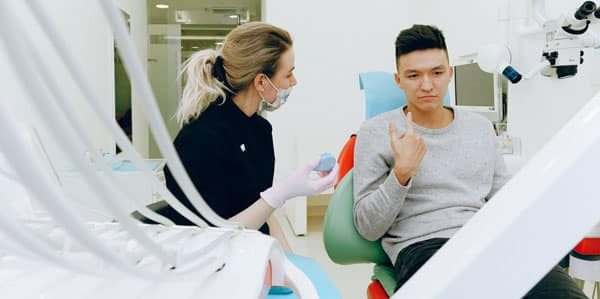
As humans, we appreciate the value of a good smile. A healthy set of teeth should not be taken for granted. Negligence towards your oral hygiene can lead to tooth decay, gum disease, and other unfavourable conditions.
Yes, those words sure are intimidating, which is why it’s important to practice preventive dental care and hygiene.
Visiting your local dentist for routine check ups could be the difference between keeping your teeth for the rest of your life, or alternatively, requiring hundreds of dollars worth of dental restoration, such as dentures or root canal treatment.
Albany Dental is a Gosford-based clinic and a trusted Children’s Dentist offering general dental care to families and individuals of all ages. Preventive measures should ideally start as early on in life as possible; however, it’s never too late to start.
Contact Albany Dental today to schedule your check up.

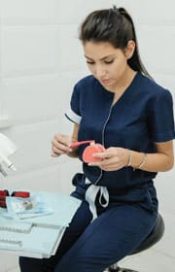
Changing hormone levels during pregnancy can cause normal, healthy gums to become red, irritated, and swollen. This irritation, known as “Pregnancy Gingivitis,” is the body’s exaggerated response to plaque and calculus.
It is essential during this time to stay current with your regular dental cleanings and exams to ensure that dental infections don’t get missed and lead to greater problems down the road. Although dentists will typically postpone major treatment until after the baby is born, emergencies do come up and need to be addressed. Because many of your baby’s organs are being formed in the first trimester, this work is ideally taken care of during the second trimester to minimise any potential risk.
Importance of Fluoride for Dental Health.
Fluoride is a naturally occurring mineral, not an artificial compound or medication like it is sometimes perceived to be. Fluoride is found in fresh and saltwater, vegetables and grains, rocks and soil. This naturally occurring mineral plays a critical role in strengthening your teeth to fight off the effects of decay. However, the Australian Dental Association state that fluoride found in the environment is not enough on its own to protect your teeth. This is why small supplemental amounts are added to the water supply and toothpaste.
Sugar Puts a Higher Risk for Dental Decay
Everything in moderation – we all know that a high sugar intake isn’t good for your overall general health and especially your oral health.
A high sugar diet puts you at a higher risk for dental decay. It is very important that you practice good oral hygiene if you are consuming sugary drinks and foods. You can easily reduce your risk of dental decay by brushing 2-3 times per day with fluoridated toothpaste, daily flossing, drinking fluoridated water and six-monthly dental visits.
After consuming sugar in your diet, it is advisable to rinse your mouth with water. Doing this will cut the time in half that the sugar stays in your mouth, giving the sugar less opportunity to damage your teeth.
Tips to Keep Your Braces Clean
The best way to clean your teeth with braces is to start by swishing water around your mouth to get all the excess food out of the braces. Piksters and super floss should be used to remove any food that has been stuck in the braces and between the teeth. Brush upper and lower teeth separately with a small head toothbrush using small gentle circular motions (an electric toothbrush is recommended). Brush above and below the brackets, making sure the gums are also being brushed without too much pressure. Then brush on the insides of the teeth and on biting surfaces, ensuring all tooth surfaces have been cleaned.
Dental Amalgam Check-up at Gosford
“Are your teeth poisoning you?” reads the headline of an article published in a major national newspaper a few years ago. Dramatic, eye-catching, scary stuff, but fortunately, dental amalgam has been studied, researched and critically reviewed extensively and established with a record of safety and effectiveness.
Dental amalgam is a combination of metals such as silver, copper and tin, and mercury, which binds the components into a hard, stable, and safe substance. Over the years, concerns have been raised about the use of amalgam because it contains mercury. The World Dental Federation and World Health Organisation have concluded that “no studies have been published demonstrating systemic adverse effects from amalgam restorations, especially during placement and removal has not been shown to cause any adverse health effects.”
There is no difference in the incidence of any disease or the length of life between people who have amalgam fillings and those that do not. People who have amalgam fillings and have had them removed do not experience an improvement in health.
At Albany Dental, we place both amalgam and composite resin fillings on posterior (back) teeth, so speak to your dentist about what material is best suited to your needs, considering the limitations and advantages of both materials. We definitely do not recommend removing amalgam fillings due to health concerns or the so-called removal of “toxic substances” from the body.
Child Dental Care Tips.
Behaviours that are learnt from a young age tend to stick with children throughout their lives, so it’s never too early to start teaching your child good oral hygiene. The Australian Dental Association recommends that children require assistance until 7 or 8 years of age. The parent helps with brushing and flossing to ensure the child removes all the plaque and to show the child how it should be done. Children will still need assistance until 10 years of age by the parent checking after the child has finished brushing to ensure all the plaque is removed and all tooth surfaces are clean
The Australian Dental Association recommends that consumers replace toothbrushes approximately every 3–4 months or sooner if the bristles become frayed with u
Baby Teeth Eruption Chart
The period when early hard teeth are growing is a major event in an infant’s life, and it can be difficult. The eruption of teeth causes inflammation, which leads to congestion, drooling, and discomfort.
While the average time for the appearance of the first teeth is between five and seven months of age, there is a wide range before and after this that can still be considered “normal.” The teeth might come in as early as one month of age, or they may erupt when the child is one-and-a-half years old. Generally, the lower front teeth come in first, and girls’ teeth typically erupt earlier than boys.
Each child is different and sometimes, you have to use trial and error to get results. The first thing to remember when you have a teething tot is that distracting them from the pain will help, and there are a variety of ways you can do this. First, try affection and attention. Giving your baby plenty of cuddles and extra attention can help keep their mind off their mouth for some short-term relief. Some light pressure with something cold can also help relieve sore gums, like gently rubbing or massaging the gums with a clean finger or a cold spoon. Just remember, not too hard and not too cold! A chilled washcloth can also do the trick. There is a range of teething rings available for babies to gnaw on. Chilled (not frozen) teething rings offer temporary pain relief through the pressure and cold and act as a distraction. Children eating solids can also use remedies such as hardened sugar-free rusks, peeled cucumber, or frozen carrots large enough not to be swallowed
Patient With Open Throat In Dentist Office.
Fissure sealants are a hard protective coating usually applied on the biting surfaces of the molar and premolar teeth. These sealants are placed as a preventative measure if the teeth have deep grooves and fissures. These areas are more susceptible to dental decay as they are very deep and narrow and collect plaque bacteria and debris that cannot be easily accessed and cleaned by the toothbrush bristles when brushing. The plaque, bacteria, and debris trapped in these fissures produce acids that may go on to cause dental decay on these biting surfaces. When these grooves are sealed off, the risk for dental decay in these areas is greatly reduced.
Regular dental visits are essential for the maintenance of healthy teeth and gums. In between those examinations, it’s important that you work to keep your teeth and gums clean and healthy.
There are two parts to a regular dental visit.
During the check-up, the dentist will check your overall oral health.
Aspects of this examination include:
During the cleaning, the hygienist will:
At Albany Dental, a check-up, clean and a fluoride treatment is $170 for all new patients.
Today’s tooth fairy needs a lot more silver than she did in 1900, when she left an average of twelve cents. In 1998, the tooth fairy left an average of one dollar. In 2014, the going rate for a lost tooth reached an all-time high with an average of $4.36*. Just keep in mind that you need to keep it consistent, with children losing 20 baby teeth in their lifetime. Multiply that by the amount of kids you have and it could be a costly exercise if you start with anything too high! Kids will compare their tooth money on the playground, and so going overboard with the fairy’s gift can cause problems with your child’s friends and neighbours. Staying within the one to five dollar range while explaining that the tooth fairy pays more for clean teeth that have been well brushed and flossed may help explain fluctuations in the rewards different tooth fairies leave.
Oral Health Routine Be at Home
Brush 2-3 times per day with a suitable fluoridated toothpaste and a small soft-bristled toothbrush. It’s also a good idea to spit any excess toothpaste out instead of rinsing. This leaves fluoride on your teeth for a longer period of time.
Cleaning in between the teeth using floss or interdental brushes – cavity-causing bacteria still hang around in between teeth where your toothbrush bristles are unable to reach. Cleaning in between the teeth helps remove plaque and food particles from underneath the gum lines and in between the teeth.
See a Dentist for a Toothache Pain at Albany Dental
Immediate action is required for dental injuries. If a tooth is knocked out, place the tooth in a container, submerged with milk, and come straight to the surgery for urgent treatment.
If you are suffering from a toothache, call us immediately, and we will do our best to see you as soon as possible.
Family Discounts At Albany Dental Gosford
At Albany Dental, we offer gap-free preventative care for families who come every six months. This service would start at your 2nd family visit, where we would discount the gap payment for all members of the family. This discount applies to examinations, scale and polish, fluoride and preventative x-rays.
Choose the Right Toothbrush for Your Needs
Studies show that using a powered toothbrush reduces plaque and gingivitis more than a manual toothbrush in the long and short term. However, it comes down to personal preference. If your dental professional says that you are brushing well with your manual toothbrush, then keep up the good work!
| Monday | 8:30am – 6:30pm |
| Tuesday | 8:30am – 5:30pm |
| Wednesday | 8:30am – 6pm |
| Thursday | 8:30am – 5pm |
| Friday | 8:30am – 3pm |
| Saturday | Closed |
| Sunday | Closed |
Contact Us
